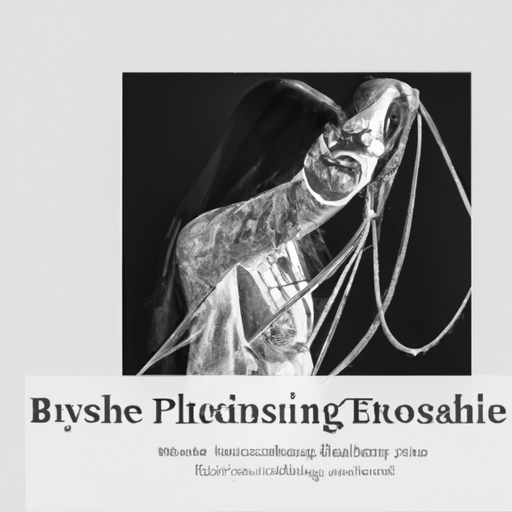
In the journey of finding love and building meaningful connections, it’s inevitable that we carry bits of emotional baggage from past relationships. These unresolved issues can create roadblocks, engendering insecurities and distrust. But fret not, for there is hope in addressing and navigating through this labyrinth of past trauma. By acknowledging the impact of our past relationships, fostering self-reflection and growth, seeking support, and embracing vulnerability, we can gradually heal and cultivate healthier connections that are free from the shadows of our past.

Understanding the Impact of Past Baggage
Identifying and Acknowledging Past Baggage
One of the first steps in addressing and working through past baggage is to identify and acknowledge its existence. Take some time to reflect on your previous relationships and the experiences that may have had a lasting impact on you. This could include any unresolved conflicts, emotional wounds, or negative patterns that have developed as a result. By recognizing the baggage you carry from your past, you can begin to understand how it may be affecting your current relationships and take proactive steps to address it.
Recognizing the Impact on Current Relationships
Past baggage has a way of seeping into our present relationships and impacting them in various ways. It can manifest as trust issues, fear of vulnerability, or a constant need for validation. By recognizing how your past experiences are impacting your current relationships, you’ll gain valuable insights into your own behavior and the patterns that emerge. This awareness is an important first step towards resolving and overcoming these challenges.
Examining Patterns and Triggers
As you delve deeper into understanding your past baggage, it’s essential to examine any recurring patterns and triggers that may be at play. You may notice similarities in the dynamics of your past relationships or specific events that consistently cause emotional reactions. By identifying these patterns and triggers, you can start to unravel the underlying issues that contribute to your past baggage. This self-reflection will enable you to take targeted action towards personal growth and healing.
Self-Reflection and Personal Growth
Taking Responsibility for Personal Healing
While it may be tempting to blame others for your past baggage, taking responsibility for your own healing is crucial. Understand that the impact of your past experiences lies within you, and it is up to you to address and heal from them. Take ownership of your healing journey and commit to doing the work necessary to let go of your past baggage.
Seeking Therapy or Counseling
Therapy or counseling can be immensely helpful in working through past baggage. A qualified professional can provide guidance, support, and the necessary tools to navigate the complexities of your emotional baggage. They can help you gain a deeper understanding of the issues at hand and guide you towards healing and personal growth.
Engaging in Self-Help Activities
In addition to seeking professional help, engaging in self-help activities can greatly contribute to your healing process. There are a variety of self-help resources available, such as books, online courses, and workshops, that can provide valuable insights and practical strategies for addressing and working through past baggage. Explore different modalities and find what resonates with you best, as everyone’s healing journey is unique.
Communication and Setting Boundaries
Open and Honest Dialogue
Effective communication is vital in any relationship, especially when addressing past baggage. Engage in open and honest dialogue with your partner or loved ones, expressing your feelings and concerns related to your past experiences. By sharing your vulnerabilities, you create space for understanding, empathy, and potential resolution of any conflicts that may arise from your past baggage.
Expressing Needs and Expectations
Clearly expressing your needs and expectations can help prevent misunderstandings and further emotional baggage. Be honest with yourself and your loved ones about what you require to feel safe and secure in a relationship. By setting healthy boundaries and clearly communicating your needs, you create an environment that fosters trust and growth.
Establishing Healthy Boundaries
Setting boundaries is essential in addressing and working through past baggage. Boundaries help define what is acceptable and what is not in your relationships, preventing the reoccurrence of past mistreatment. Establishing and maintaining healthy boundaries encourages self-respect and shows others how to treat you. It’s important to communicate your boundaries clearly and ensure that they are respected by yourself and others.
Building Trust and Overcoming Trust Issues
Understanding the Root Causes of Trust Issues
Trust issues can stem from past betrayals or traumatic experiences, making it challenging to form and maintain healthy relationships. Understanding the root causes of your trust issues is crucial in addressing and overcoming them. Reflect on past experiences that may have contributed to your lack of trust and work towards understanding how they have impacted your ability to trust others.
Rebuilding Trust through Consistency and Transparency
Rebuilding trust takes time and effort, both from within yourself and in your relationships. Consistency and transparency are key components in restoring trust. Be dependable in your actions and words, and strive to be transparent and honest in all your interactions. Consistently demonstrating trustworthiness will gradually rebuild trust and create a stronger foundation for your relationships.
Seeking Professional Help if Needed
Overcoming trust issues can be complex and challenging, and seeking professional help may be necessary. Therapy or counseling can provide you with the tools and support needed to work through your trust issues effectively. A skilled professional can guide you through the process, help you address underlying traumas or insecurities, and provide strategies for building healthy trust in relationships.

Embracing Forgiveness and Letting Go
Understanding the Power of Forgiveness
Forgiveness is a transformative act that allows you to release the burden of past hurt and resentment, freeing yourself to move forward. Understand that forgiveness does not mean condoning or forgetting the past, but rather making a conscious choice to let go of the negative emotions attached to it. By forgiving, you reclaim your power and open yourself to healing and new possibilities.
Working Through Resentment and Anger
Resentment and anger can be significant roadblocks in addressing past baggage. Take the time to explore and process these emotions constructively. Journaling, talking to a trusted friend, or seeking professional guidance can be helpful in navigating these complex emotions. By acknowledging and working through resentment and anger, you create space for forgiveness, healing, and personal growth.
Practicing Letting Go
Letting go is a continuous practice that requires patience and self-compassion. Release the attachment to your past baggage and embrace the present moment. This practice involves acknowledging that you cannot change the past, but you have the power to shape your future. Letting go allows you to move forward with a lighter heart and a newfound sense of freedom.
Taking Time for Self-Care and Self-Love
Prioritizing Emotional and Physical Well-being
Self-care and self-love are crucial components of addressing and working through past baggage. Prioritize your emotional and physical well-being by engaging in activities that nourish your mind, body, and soul. This could include exercise, meditation, spending time in nature, practicing mindfulness, or pursuing hobbies that bring you joy. By taking care of yourself, you are better equipped to navigate the challenges associated with past baggage.
Engaging in Activities That Bring Joy and Fulfillment
Engaging in activities that bring you joy and fulfillment is a powerful way to counteract the negative impact of past baggage. Explore your passions, hobbies, or interests that make you feel alive and vibrant. By immersing yourself in activities that bring you happiness, you cultivate a sense of purpose and create positive experiences that can override the lingering effects of your past.
Practicing Self-Compassion
Self-compassion is an essential aspect of self-care and healing. Be gentle with yourself as you navigate the challenges of addressing and working through past baggage. Practice self-compassion by nurturing your inner dialogue, treating yourself with kindness and understanding. Remember that healing is a process, and it’s okay to stumble along the way. Embrace self-compassion as a guiding principle on your journey to self-growth and transformation.
Learning From Past Mistakes
Identifying Repeating Patterns and Behaviors
Learning from past mistakes involves identifying any repeating patterns and behaviors that have contributed to your past baggage. Take an honest look at your relationship history and acknowledge any unhealthy patterns that may have emerged. Whether it’s choosing partners with similar traits or engaging in self-sabotaging behaviors, recognizing these patterns allows you to take conscious steps to break free from them.
Developing Better Self-Awareness
Developing self-awareness is key to breaking free from past baggage. Reflect on your thoughts, feelings, and reactions in various situations. Understand the underlying motivations behind your actions and explore any unconscious beliefs that may be driving your behavior. By developing self-awareness, you become better equipped to make conscious choices that align with your desired growth and healing.
Implementing Lessons Learned
The lessons learned from past mistakes are valuable tools for personal growth. Take the insights gained from your past experiences and implement them in your present and future relationships. Use the knowledge you’ve acquired to make informed decisions, set healthier boundaries, and foster healthier communication. By implementing the lessons learned, you create a solid foundation for personal growth and positive relationship dynamics.
Surrounding Yourself with a Supportive Network
Seeking Support from Friends and Family
When addressing and working through past baggage, it’s essential to surround yourself with a supportive network. Reach out to trusted friends and family members who can offer empathetic ears, guidance, and encouragement. Sharing your experiences and feelings with those who care about you can provide a sense of validation and support, making your healing journey more manageable.
Joining Support Groups or Communities
Support groups or communities consisting of individuals who have experienced similar challenges can be invaluable in working through past baggage. These groups offer a safe and non-judgmental space to share your struggles, gain insights from others, and receive support from those who truly understand. By joining these communities, you create connections and opportunities for growth alongside like-minded individuals.
Finding a Mentor or Role Model
Finding a mentor or role model who has successfully worked through their own past baggage can provide inspiration and guidance on your own journey. Seek out individuals who have overcome similar challenges and admire their resilience and growth. Their stories and advice can offer perspective, motivation, and encouragement as you navigate through your own healing process.
Accepting Imperfection and Embracing Growth
Letting Go of Unrealistic Expectations
Accepting imperfection involves letting go of unrealistic expectations of yourself and others. Understand that no one is perfect, and holding yourself or your relationships to unattainable standards only leads to dissatisfaction and disappointment. Embrace the imperfections within yourself and your relationships, and focus on growth rather than unattainable perfection.
Embracing Growth and Learning
Embracing growth and learning is an ongoing process that helps you move forward from your past baggage and become the best version of yourself. Embrace opportunities for personal growth, whether they come in the form of challenges, new experiences, or self-reflection. By approaching life with a growth mindset, you cultivate resilience and open yourself to transformative experiences and personal evolution.
Cultivating Self-Acceptance
Cultivating self-acceptance is a powerful antidote to past baggage. Accept yourself fully, flaws and all, recognizing that your past does not define your worth or future possibilities. Embrace self-love and celebrate your unique qualities and strengths. By cultivating self-acceptance, you build a solid foundation for healing, growth, and embracing new opportunities.
Moving Forward and Embracing New Opportunities
Learning from the Past and Not Dwelling on it
Moving forward from your past baggage involves learning from it, rather than dwelling on it. Take the lessons and insights gained from your experiences and apply them as you embark on new relationships and opportunities. Use your past as a guidepost, but not as an anchor that weighs you down. By focusing on the present and future, you create space for new beginnings and positive transformations.
Keeping an Open Mind for New Relationships
When working through past baggage, it’s important to approach new relationships with an open mind. Avoid projecting past wounds and mistrust onto new partners, and instead, give them the opportunity to show themselves as individuals. Maintaining an open heart and open mind allows for genuine connections and the potential for healthy, fulfilling relationships.
Embracing the Journey of Growth and Transformation
Embracing the journey of growth and transformation is a continual process that transcends past baggage. Celebrate each step forward, no matter how small, and recognize that personal growth is an ongoing journey. Embrace the challenges, setbacks, and triumphs that come along the way, knowing that each experience contributes to your growth and transformation into a healthier, happier, and more fulfilled individual.
By understanding the impact of past baggage, engaging in self-reflection and personal growth, communicating effectively, building trust, embracing forgiveness, practicing self-care, learning from past mistakes, seeking support, accepting imperfection, and moving forward, you can address and work through your past baggage, paving the way for a more fulfilling and harmonious present and future. Remember, this journey is uniquely yours, and with time, patience, and kindness towards yourself, you can heal, grow, and create the relationships and life you desire.






